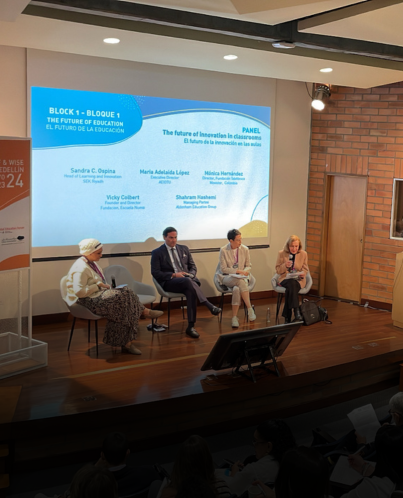Why STEAM Learning Is So Important
You might have already heard of STEM, which is a relatively new educational approach that combines science, technology, engineering, and mathematics in order to set up pupils for success in later life. There’s a new approach, however – STEAM – and this combines all of the above with the creative arts. While STEM learning is important, more and more schools are turning to STEAM learning because of the valuable skills it can impart.
What is STEAM?
When it comes to education, STEAM stands for science, technology, engineering, arts and mathematics. Not only does it teach pupils to use scientific and problem-solving skills, but the inclusion of arts encourages them to think creatively at the same time. The STEM approach to education was first introduced back in 2001, while researcher Georgette Yakman developed the STEAM framework in 2006. While it’s newer, it’s clearly gathering steam, and more and more schools are implementing it. By studying STEM subjects, pupils can learn valuable life skills – after all, these subjects permeate every aspect of our daily lives. STEAM learning, however, integrates these with more artistic subjects.
That doesn’t just include the creative arts, like art, dance, drama, and music, but other arts-based disciplines like languages, social studies, and humanities. The biggest difference between STEM and STEAM (apart from the number of subjects) is in their approach to learning. STEM focuses on teaching pupils the hard scientific or mathematical skills they’ll need to solve problems. STEAM, on the other hand, gives children a more well-rounded education and encourages them to think more creatively, and to think outside the box by experimenting more. At Aldenham Education Group, our schools in the UK and abroad have all the facilities to offer our pupils the best possible education, in both science and the arts. Our newest school, Aldenham Prep Riyadh, for example has a Science and Technology classroom with all the equipment needed to conduct experiments, as well as a cutting-edge Music Room, and a Learning Resource Centre where pupils can get creative with a 3D printer, a high-tech VR system, and video production software. In the UK, meanwhile, our pupils have access to the latest modern technology designed to enhance their learning – at Aldenham School, they can make use of a fully-equipped recording studio, a brain scanner in the Psychology classroom, a 3D printer, and even learn how to write software in their Computer Science classes.
Putting the A in STEAM
STEAM learning aims to infuse artistic skills into the more scientific subjects. The benefits of this include encouraging creativity and developing more problem-solving skills. This teaching approach can improve critical thinking, as pupils have access to skills and toolsets from both artistic and scientific subjects. STEAM learning combines different subject areas in a way that traditional teaching approaches hasn’t – instead, different subjects are segmented and separated. The success of STEAM learning has been supported by studies, including this American study from 2016, which found that pupils who had received just nine hours of STEAM learning made improvements in their science lessons, compared to pupils on a STEM-only curriculum.
STEAM learning can also help to improve pupils’ communication and encourage them to collaborate on projects or tasks. The performing arts, like dance and drama, can improve communication skills and encourage pupils to express themselves. They can inspire pupils to be more well-rounded individuals, and is something we encourage at our schools. Drama is just one of the many co-curricular and extracurricular activities we offer at Aldenham, along with other performing arts like music. Through drama, we aim to guide our pupils to be better communicators and explore their imagination, while music can teach important skills like time management and discipline. At Aldenham School, we offer our pupils state-of-the-art facilities – they all have the opportunity to take to the stage and perform in our purpose-built theatre, or even work backstage as lighting or sound technicians.
How STEAM Can Set Pupils Up For Life
As well as imparting valuable life skills, the subjects included in STEAM learning can help prepare pupils for further education, and give them marketable skills they can use in their careers once they leave college or university. In fact, a STEAM education can prove to be far more valuable than a STEM education – a study by the National Endowment for the Arts found that pupils who’d attended a school with a STEAM curriculum were 21% more likely to attend college when compared to others who lacked an arts education. By offering pupils a more well-rounded education, it gives them a better chance at getting into universities. The institutions are looking for students with a more versatile knowledge base rather than being skilled at just one subject, which is why we at Aldenham believe in offering our pupils an all-round education, and encouraging them to grow up to be both well-balanced and self-motivated.
A STEAM education can give pupils better job prospects. There’s a growing demand for people with STEM or STEAM skills – the US Bureau of Labor has predicted that STEM occupations will grow by around 8% by 2029. Even if they don’t end up going on to work in a STEAM-related field, they can still put the skills they’ve learned to good use – this learning framework can benefit them in both their personal and professional lives. At every one of our Aldenham schools, we believe in looking to the future to set our pupils up for success, and regularly train our staff in new teaching methods designed to help our pupils as best we can.
Although it’s impossible to say for sure what jobs will be available to our pupils in the future, a STEAM education is one of the best ways of preparing them for life after they graduate. It can give them the knowledge and skills they need to think outside the box, both creatively and critically. A STEAM education can empower pupils and give them invaluable skills. To find out more about our academic programme, and how we cater to our pupils’ individual needs, take a look at the Aldenham UK website.


